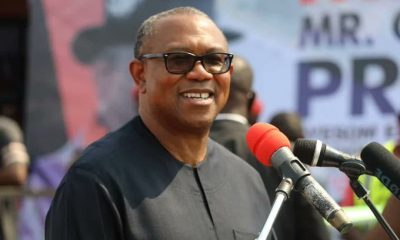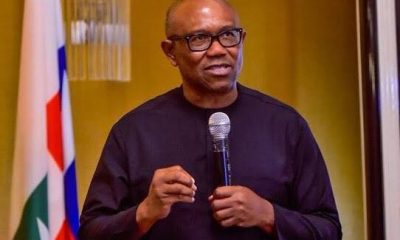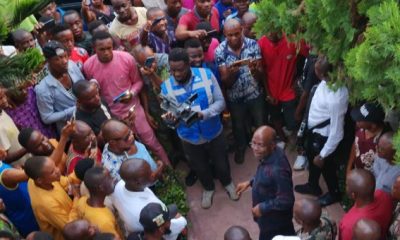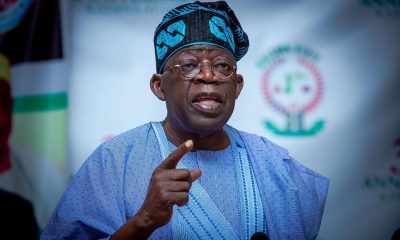Headlines
Fashola blames IPOB sit-at-home for non-completion of 2nd Niger Bridge
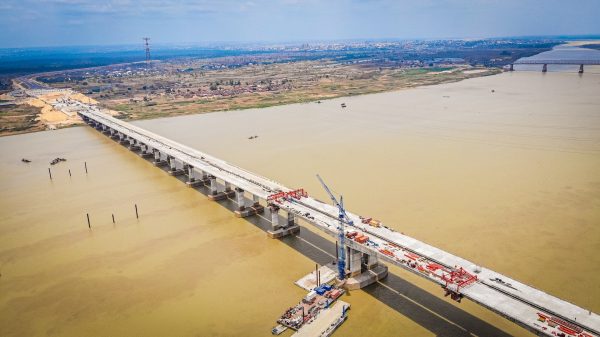
The Federal Government, on Thursday, blamed the Indigenous People of Biafra (IPOB) for the non-completion of the Second Niger Bridge as scheduled.
Minister of Works and Housing, Babatunde Fashola, said the weekly Monday sit-at-home order imposed on the South East by IPOB has impacted negatively on the progress of work on the bridge, which according to him, is now named “Muhammadu Buhari Bridge”.
Other than IPOB, Minister Fashola also named the #EndSARS protest across the federation and the several months of lock down occasioned by the COVID-19 pandemic, as contributing to missing the February 2022 deadline completion date of the project.
Mr Fashola spoke with State House correspondents during a special ministerial briefing organised by the Presidential Communications Team, at the Presidential Villa, Abuja.
He explained that the initial February completion date projection for the Second Niger Bridge failed due to several factors such as the COVID-19 lockdown, #EndSARS protests, and the sit-at-home orders by the Indigenous People of Biafra which delayed works on the Anambra side of the bridge.
He, however, added that the project was already at 91 per cent completion stage.
According to him, the Lagos-Ibadan Expressway and Second Niger Bridge are on course to be completed in 2022.
READ: #EndSARS protesters ask panel to summon Sanwo-Olu, Fashola, others
“The Lagos-Ibadan Expressway will be delivered this year, subject to how we navigate the pricing issues. Second Niger Bridge also this year, while the main carriageway of Abuja-Kaduna-Zaria-Kano Expressway is scheduled for completion by the second quarter of 2023 before the President leaves office at the end of his tenure.
“On the Second Niger Bridge, one of the challenges we are facing on the Anambra side of the project is the stay-at-home order on Mondays and every day we don’t work, there is time lost.
“On the second Niger Bridge, we are going to shut down the power supply from one of the power plants for maintenance. On Abuja-Kano Road, we have to relocate transmission lines; we have to move people who have set up markets along the roads and so on.
“So, these are some of the challenges we are facing and then there are compensation issues and we are working with Governors, who control land in their states to help us overcome these local issues,” the minister said.



